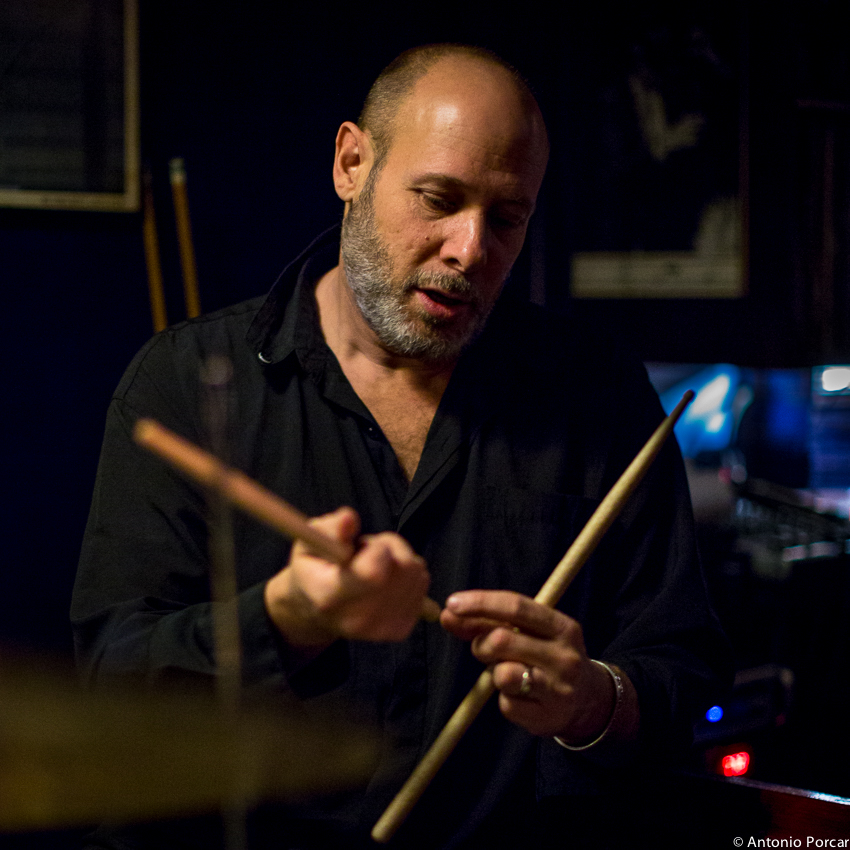Jeff Ballard was born in Santa Cruz, California. As a child, he recalls lying in bed listening to his father’s music every weekend. He loved the sound and speed of Ed Thigpen’s brushes on the snare. I can remember feeling the power and rhythm of a Basie shout chorus, which would then disappear into a quiet dancing riff. The best part about it was the swing. It was also how it felt to travel through the sounds of the jungle on a Milton Nascimento album. The sound of the drums, percussion and voice would be like they were either made from water or earth. It was so wonderful to hear Ella and Louie sing and play together. “I think that my early exposure has made me part and parcel of who I am today, especially with regard to my love of sound.” He studied music theory at a community college. He also played in a large band and started playing in smaller groups that played music for various occasions. He discovered that there are many ways to play the drums. Each occasion is different. Each genre has its own requirements that must be met. A big band requires a simple, but powerful, drive that is more supportive for the group to be able to play. Brazilian drumming requires a driving bass drum and a light dancing style with the hands. Reggae demands a sophisticated groove that is comparable to swing. Afro Cuban music can be compared to boxing, which is like sparring with an adversary. The challenge lies in finding the music’s specific needs. “The joy is in the discovery.” He was captivated by’modern jazz’ while living and playing in San Francisco. The way I learned to play drums was completely transformed by Tony Williams’ performance with Miles. My whole world was changed by hearing John Coltrane, Elvin Jones, or listening to Ornette Cole’s music. It was like coming home” At twenty-five, he started playing with Ray Charles. The band toured for 8 months straight each year. Ray made us feel like we were hearing the exact same songs and arrangements every night. The drum chair was by far the most comfortable seat in the house. To see Ray’s feet and determine the right groove, I had to only watch them. It was a wonderful school. Jeff Ballard moved to New York City after three years of working with Ray Charles. There he met like-minded musicians who both drew on tradition and were searching for their own interpretations and expressions in music. Brad Mehldau and Mark Turner, Kurt Rosenwinkel, Mark Turner, Avishai, Guillermo Klein (Larry Grenadier), Ben Allison, and many other musicians. Music was more personal and drew heavily from a wide range of influences when I first started to play it. For example, I recall studying Argentine rhythms, transposing them onto the drumset, or adding middle-eastern beats to my drums. The approach was to find the equivalent sound on the drums to something that is not the original. This included the dry staccato sound from the dancer’s feet on hard wood floors, the ornamental sounds made by bells attached to the wrists and synthesizing what I felt would work musically in the drums. Next, I began to explore how I could make my own drum sounds. I have had the chance to discover my love for sound by recording and playing with these musicians. The sound is what touches me most, and not the note itself. “Jeff Ballard also played and toured alongside Eddie Harris, Bobby Hutcherson and Buddy Montgomery as well as Mike Stern and Mike Stern. He joined Chick Corea as a member in 1999, and continues to be a part of his many projects. “I learned so much from playing with him over those six years. Through him, I was able to experience a fast improvisation speed and an unwavering clarity in my music. I gained a greater awareness of my playing through the opportunity to play in many different musical settings, such as with his sextet Origin, the New Trio, or large symphonies. Monitors were rarely used on gigs. It was all about the sound of the instruments on stage.” Jeff Ballard, currently a member the Brad Mehldau Troo, Joshua Redman’s Elastic Band performs occasionally with Corea and is co-leader of Fly. This trio includes Larry Grenadier and Mark Turner. Fly is a small unit that uses a focused approach. The lead voice changes instruments often or disappears into a three way dialogue. “Interdependence can only be total. We wanted to reduce the complexity and see what this type of instrumentation could do sonically. This arrangement offers more harmonic and sonic possibilities than other arrangements. This is not the only consequence. It also allows us to explore and create our own compositions.” Their self-titled album Fly and subsequent concerts have been praised by critics as the best record of 2004.
